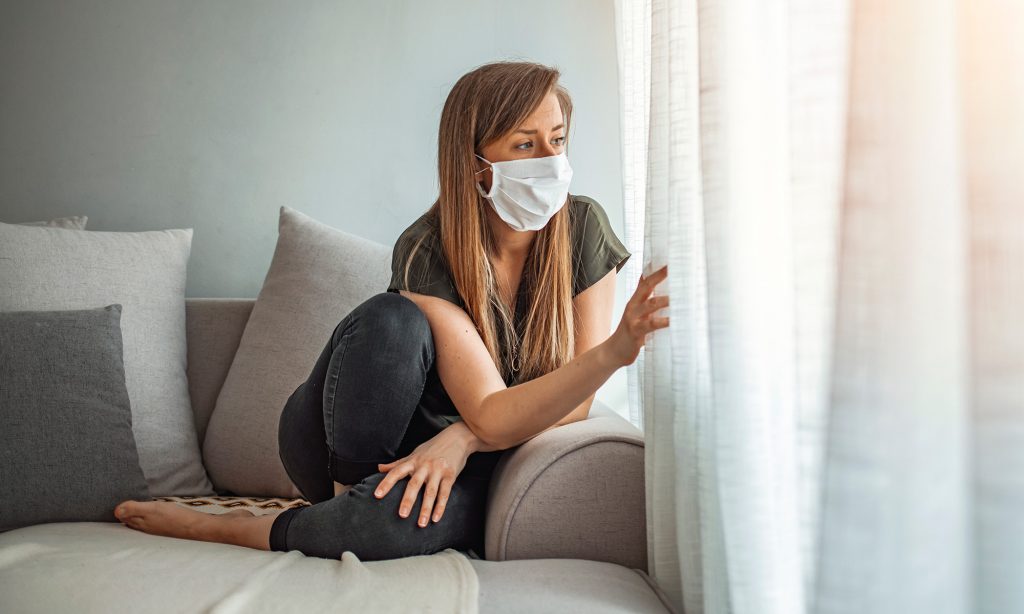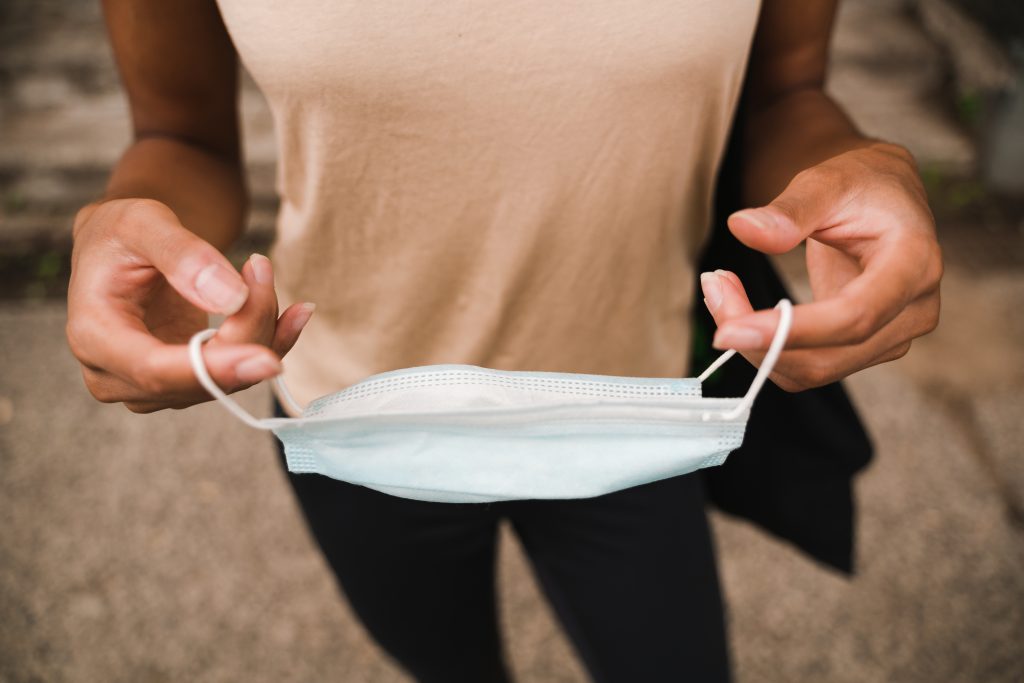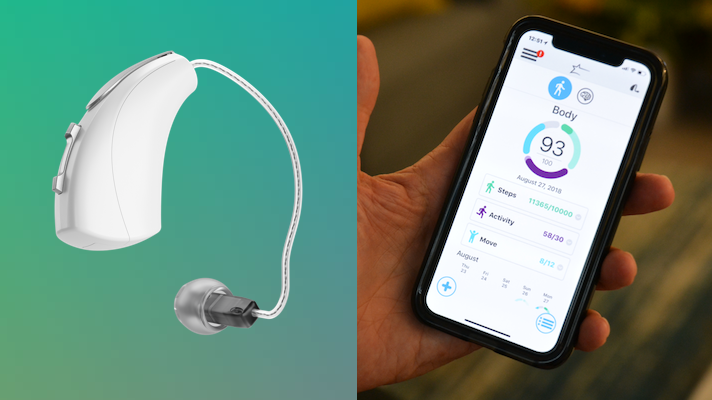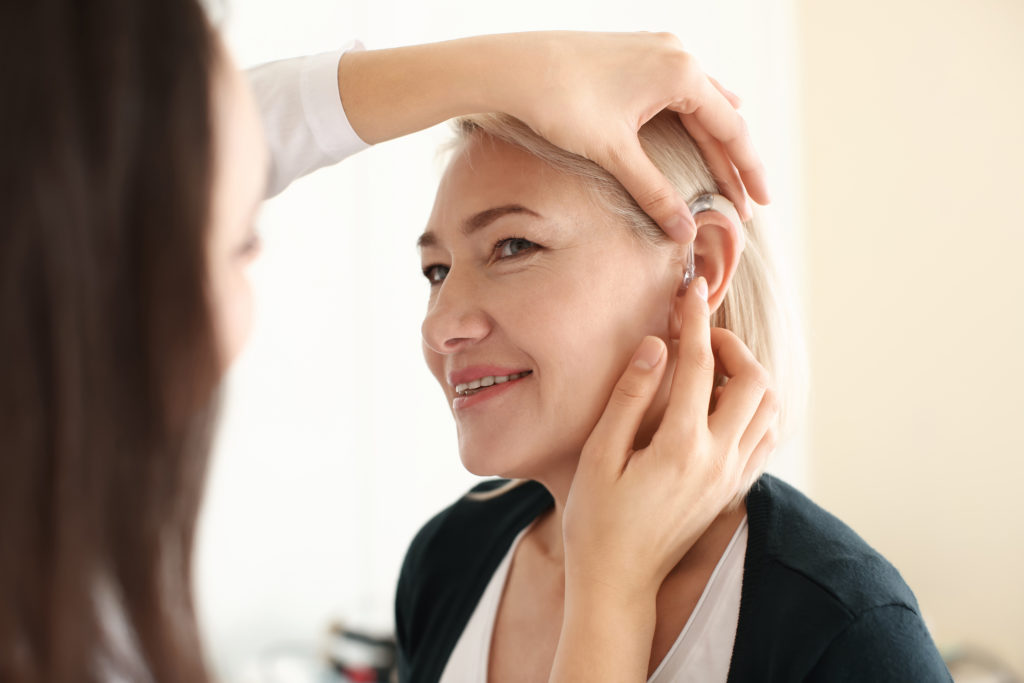By: Shannon Aiello, Au.D.
Regardless of your feelings regarding the use of face masks and their effectiveness, it looks like in Washington, they will be here to stay for the near future.
A significant but important and unintended consequence of face masks is the increased difficulty in communication, especially for deaf or hard of hearing patients. Wearing a face mask impairs the ability for some people to communicate with ease because it prevents lip reading and it can reduce the understandable level of speech transmitted from the mouth.
Removing visual cues can make communication more taxing because of the mental exertion required to listen, especially when there is background noise. As a result, even if a person can follow what is said, they often have fewer mental resources to think about and recall what they heard.
Research has shown there are beneficial effects of wearing surgical masks made from a transparent material that allows the mouth to be viewed, but these masks are not widely available. Face shields, rather than masks, may also offer a solution however the public has yet to embrace them.
The effort needed to listen and communicate is increased for those with hearing loss. Current statistics show there are 1.33 people globally with hearing loss.
Most Effective Masks for COVID-19 Protection Are Not So Good for Hearing
The N95 and FFP3 respirator masks for frontline health and care workers can filter 95% of particles, but they are much more likely to distort and reduce the level of speech. This makes communication particularly difficult. Many medical professionals are now wearing full PPE and a fitted mask resulting in muffled speech.
Practical communication strategies for the hard of hearing
What can you do to improve communication if you have a hearing loss and are confronted by someone wearing a face mask?
- Ask them to reduce the background noise as much as possible or move to a quieter location.
- Ask them to talk slowly, distinctly, and not shout.
- If you have a hearing aid, make sure to wear it and that it is working well. Have your hearing tested and hearing aids adjusted minimally within the last year to ensure optimal function.
- Some hospitals provide portable hearing amplifiers to help with communication if you have lost your hearing aid or it has stopped working.
- Download the Google Translate app to translates speech into text in real-time.
- Let people know that you have a hearing loss and ask them to make accommodations for you. This might mean using writing, moving the conversation to a quieter location, or lowering their mask (Important to note: Washington State mandate provides a mask exemption for those with hearing loss, or those who are communicating with those who have hearing loss.) Be sure to use safe social distancing if masks are lowered.
- Bring someone with you to help hear. Two sets of ears are better than one.
- Ask for written instructions or notes if they are available.
- Have your primary communication partner use a mask with a clear window to allow for lip reading.
Selecting the Right Mask for Hearing Aid Users
As you have probably noticed, there are many different mask options, and some are more compatible with hearing aids than others. Here are some things to consider when trying to make your mask and hearing aids friendlier and more compatible.
Length of straps
Straps that are too short will pull your ears forward, causing discomfort as well as making your hearing aids less secure. Ensure that your ears are able rest in their natural position when the mask is in place.
Thickness of straps
Because there is limited real estate behind your ear, a mask with thin elastics or strings will allow you to fit both your hearing aid and straps behind your ear without competing for space. Wider straps are also more likely to pull your ears forward, even at the appropriate length.
Position of straps
While many masks have straps behind the ear, there are some which have the straps that go around the back of the head. This may make removal easier and provide better comfort. If you cannot find a mask with these kinds of straps, you can purchase or make face mask adapters which hook ear straps behind your neck or head.

Preventing Lost Hearing Aids
We have noticed MANY more lost hearing aids over the past few months due to hearing aids getting caught in masks. The most important thing you can do to prevent this is being extra careful when you are removing masks. Here are some other tips you can use to help keep your hearing aids in place.
Removing Your Mask
When taking off your mask, try to remove your straps from the top of the ear and back around to the bottom. This can help avoid the strap tangling with your hearing aid and pulling it out of your ear. The easiest method is to place one finger on each side between your mask and your head, just in front of your ear. Then slowly sweep your fingers back and trace your way down the back of your ear.
When to remove the mask
If you are concerned about your hearing aid falling out of your ear when removing your mask, be sure you are in a secure location before taking it off. This may mean waiting until you are inside your car or home to avoid losing a hearing aid in a parking lot or driveway.
Securing Hearing Aids to Masks or Ears
Hair Clips
If you have longer hair, you can use bobby pins, or miniature “hair claws” to clip tubes or receivers directly to the straps of a mask. This way, if and when the mask comes off, the hearing aids stay attached and come off with the masks.
Wig Tape
For those without hair, a small amount of wig tape can be placed on the side of the hearing aid to secure it to either your ear or scalp to keep it secure.
Hearing Aid Clips
These devices look very similar to eyeglass loops and operate the same way. There is an eyelet opening through which you can run the hearing aid then clip the other end to the back of your shirt, so if it does fall out it is secured in place on the clip. These can be purchased at any audiologists office or online for a minimal charge.





